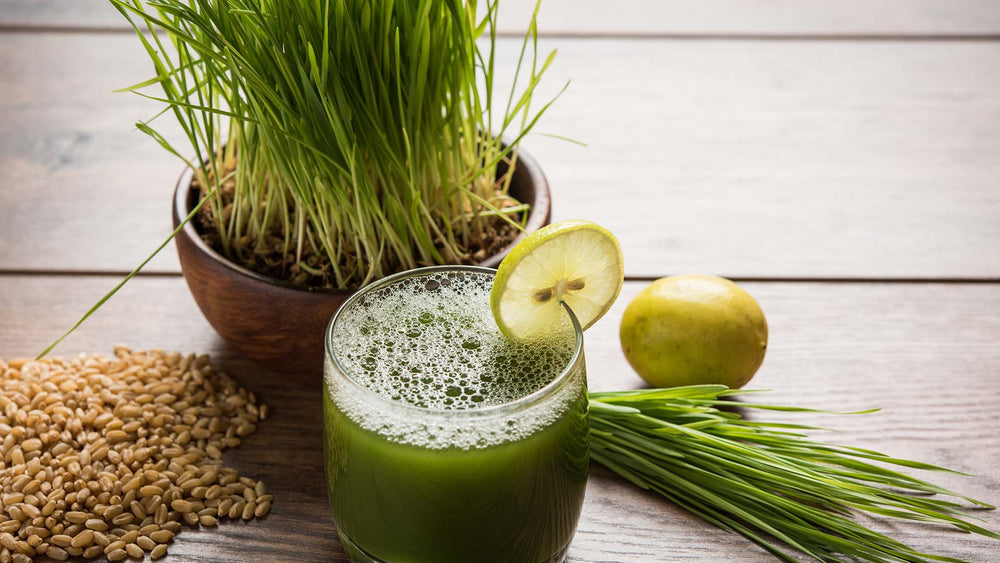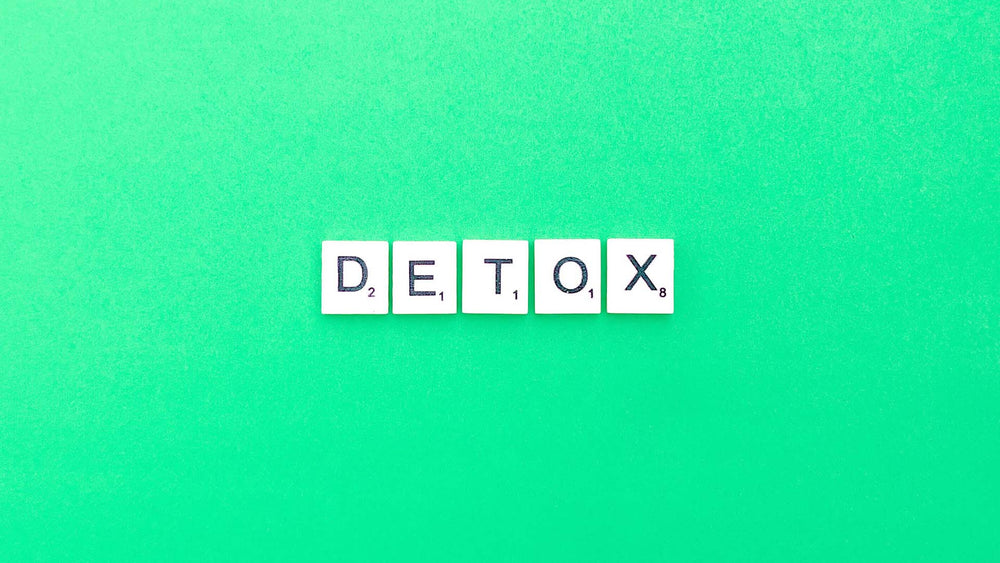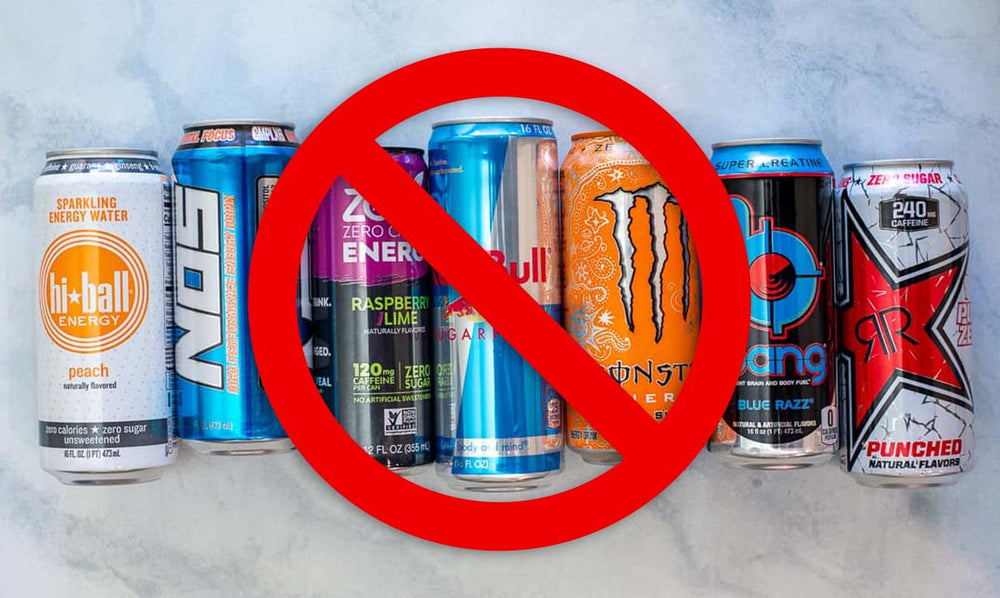It's not always possible to eat fresh fruits and vegetables and home-cooked meals everyday. Let's face it, sometimes it's just easier to buy a frozen dinner or a bag of chips to save time. But what is really in those convenient foods, and how will they affect our health in the long-term? Here's a look at ten common ingredients used in baked goods, chips, and other long-shelf-life foods
1. Trans fats
Manufactured fats called trans fats were originally developed to give pizza, crackers, cookies, doughnuts and other processed foods better taste and texture. Fast-food restaurants often use trans fats in their deep-oil fryers because the same vat can be used several times. Trans fats raise your LDL cholesterol, triglycerides and blood pressure, and increase your risk of Type 2 diabetes.
Your body isn't equipped to handle trans fatty acids, artificial preservatives and other man-made substances in processed foods. When you eat a lot of foods containing these additives, they build up in your system and increase your chance of heart disease, cancer, and other life-threatening diseases. If you stop eating foods with trans fats, your body will rid itself of all traces of this artificial fat in about a month. If you relapse and eat trans fats, your body accumulates them again, resuming the vicious cycle.
Studies show transfats lead to heart disease, diabetes and stroke, and the FDA has set a time frame for manufacturers to eliminate all trans fats from their products.
Trans fats are created when hydrogen is added to vegetable oil to make it thicker. The following processed foods may contain trans fats:
- Margarine
- Crackers
- Microwave popcorn
- Frozen Pizza
- Doughnuts
- Coffee creamer
- Fast food
- Breakfast sandwiches
- Pies
- Cookies
Shortening, palm oil, palm kernel oil and partially hydrogenated vegetable oil are other names for trans fats. Avoid any product with an ingredient that has the word “hydrogenated” in it. A report showed that as many as 37% of processed foods in the grocery store contain trans fat.
Investigate any advertising that claims a product is trans fat-free. The FDA lets manufacturers market a product as trans fat-free if it contains 0.5 grams or less of partially-hydrogenated oils. Check the label for the amount of fiber in each serving – 3 grams is ideal.
Look for products made with peanut, olive or canola oil instead, and use these healthy oils when cooking at home. Replacing trans fats with good fats could cut your heart attack risk by a whopping 53 percent.
2. Artificial Sweeteners
Artificial sweeteners are intended to help you save calories and lose weight, however, that may backfire since studies (https://www.ncbi.nlm.nih.gov/pmc/articles/PMC2892765/) show you'll probably eat more of the artificial treats than you planned to, causing weight gain and making you crave sweets even more. Other studies showed some artificial sweeteners may cause cancer.
Baked goods made with artificial sweeteners may also contain artificial colors, preservatives and potassium bromates, which increase your chance of diabetes, heart disease and cancer.
Avoid adding any of these sweeteners to beverages, and don't buy processed foods containing them. You may find artificial sweeteners in the usual culprits - ice cream, cake, cookies, muffins and soda – but they may also be hidden in juice, salad dressing, yogurt, chewing gum, and even toothpaste and nicotine tablets!
- Sweet ‘N Low
- Xylitol
- Equal
- Splenda
- Aspartame
- NutraSweet
- Sorbitol
- Sucralose
- Saccharin
- Acesulfame potassium
- Dulcin
Eat fruit to get natural sugar, and use a small amount of cane sugar in drinks instead of artificial sweeteners. Don't be afraid to drink black coffee or lemon with tea and no sugar. You'll save calories, and coffee (in moderation) is actually good for you.
3. Potassium Bromate
An oxidizing agent commonly used by bakers to make dough rise, potassium bromate has been shown to cause cancer in rats. Brazil, Canada and other countries prohibit the use of potassium bromate in food production.
Bread made from refined flour contains none of the germ, bran and fiber of natural, whole-grains. Instead, opt for whole grain breads, rice and cereals including the following:
- Quinoa
- Buckwheat
- Oatmeal or whole oats
- Groat
- Rye
- Teff
- Barley
- Brown Rice
- Bulgur
Cupcakes, buns and breads last longer when commercial bakers add potassium bromate to the mixture. The longer baked good last, the longer it can sit on store shelves. The more products the store sells, the better for the store and the manufacturer.
Day old bread from a bakery is relegated to the bargain bin. If large companies baked only fresh bread without preservatives, they'd need to sell all loaves within 24 hours. After that, they'd need to sell it at cut-rate prices or throw out the product. That's not good for a company's bottom-line, and preservatives keep baked goods in salable condition longer. That's good for the manufacturer's yearly report, not so good for your health.
White bread, muffins and bagels are harder to give up than sugar and salt for many people. If the thought of going without bread or a pasty in the morning is sacrilege, substitute whole-grain bread for white bread. When you buy whole-grain bread or buns at the store, make sure the word “whole” appears in the name of one of the first three ingredients on the label. Whole-grain wheat bread should be made primarily of – you guessed it – whole-grain wheat.
If you bake bread at home and leave it on the counter, it becomes stale faster than bread you buy at a store. Why? Potassium bromate and other preservatives. Even if you do bake bread at home, some flour brands contain potassium bromate. Stick with Gold Medal and King Arthur brands when baking at home since they're unbromated. (http://www.bakepedia.com/tipsandtricks/unbromated-unbleached-flour)
4. Sodium Nitrates and Sodium Nitrites
Sodium nitrates and sodium nitrites are natural salts found in water, soil and the human body. The average person gets most of their sodium nitrate from veggies, including celery, beets, arugula, spinach and radishes. Sodium nitrates from these sources can prevent heart disease. Sodium nitrate in cured meats is another story.
Sodium nitrate is used to preserve meats, and you'll find it in hot dogs, bacon, jerky and packaged luncheon meats. Once you eat sodium nitrate in preserved meat, it turns into sodium nitrite in your body. Nitrite turns into nitric oxide in your gut, encouraging blood flow, lowering blood pressure, and helping more oxygen reach the brain and heart. (Don't confuse nitric oxide with nitrous oxide, “laughing gas” used at the dentist.)
Nitrates may turn into nitrosamines, dangerous substances that have been found to cause cancer in lab rats. People who take proton pump inhibitors for acid reflux may be at risk for producing nitrosamines. When you eat vegetables containing nitrates, the other vitamins, (especially Vitamin C), and substances in them prevent nitrates from turning into nitrosamines, but there's no similar prevention mechanism for nitrates in processed meat.
Nitrates may harm one person more than another. If you have healthy gut bacteria, eating a few hot dogs at a barbecue occasionally won't hurt you as much as someone with bad bacteria.
In 2015, the World Health Organization classified processed meat as a carcinogen. The organization's study found that eating one hot dog or four strips of bacon everyday increased colorectal cancer risk by 18%. Keep your processed meat consumption low, or give it up entirely, for optimal health.
5. Artificial Colors
The food dyes that make soda, frosting and cereal look good may be deadly for many people. In 2010, the Center for Science in the Public Interest published the report “ Food Dyes: A Rainbow of Risks”. The report cited that Blue #1 and #2, Green #3, and six other leading artificial food colorings have been shown to cause several different types of cancer.
Manufacturers in Europe and the U.K. use carrot, pumpkin or strawberry extracts and other plant-based coloring in food. In the U.S., manufacturers still use artificial food dye despite concerns that it may cause,ADHD in children as well as cancer.
Keep your family safe by choosing treats without any additional coloring, or ones colored with vegetable dye.
6. Sodium Benzoate
This chemical prevents food from developing mold. It's used primarily in soda, salad dressing, pickles, fruit juices and other acidic foods. When consumed in small amounts, it doesn't pose a problem, but it becomes a potential carcinogen when combined with Vitamin C and/or heat. When plastic bottles of soda are left out in the sun for a long time (like on the beach or at a picnic), a harmful level of a colorless, carcinogenic substance called benzene is produced, so keep sodas in a cooler during your day trip. Sodium benzoate may cause ADHD in children, with or without artificial food coloring, another risky additive.
7. BHA and BHT
Pick up any packaged food in the supermarket, and you'll probably find BHA or BHT somewhere on the ingredient list. BHT (butylated hydroxytoluene) and BHA (butylated hydroxyanisole), preservatives used to prevent oils in food from spoiling, are found in potato chips, breakfast cereals, bread, beer, instant mashed potatoes, chewing gum, dessert mixes and baked goods and other foods.
These chemicals are also used in cosmetics, rubber, food packaging and petroleum. Eating something that contains one of the same chemicals used to make a rubber band doesn't sound too appetizing, does it?
The FDA gives these preservatives a GRAS (generally regarded as safe) rating, and studies on BHA and BHT offer mixed results. BHT may increase or decrease the risk of cancer in animals, depending on which study you read, and BHA may be a carcinogen according to some animal studies, and may protect or harm cells, according to other studies.
Eating small amounts of food with BHA and/or BHT probably won't cause you any health problems, but it's better to choose foods without preservatives, or ones with a natural preservative like Vitamin E.
8. High Fructose Corn Syrup
High-fructose corn syrup (HFCS), is an artificial sweetener made from corn starch, and it's so widely used in soda, candy and other processed foods today, it deserves a separate mention from the other artificial sweeteners on this list. HFCS is produced when enzymes are added to corn syrup to turn some of the glucose in the syrup into fructose. A cheap alternative to cane sugar, you'll high-fructose corn syrup in the following products:
- Ketchup
- Breakfast Cereals
- Soda
- Crackers
- Flavored Yogurt
- Candy Bars
- Salad Dressing
- Baked Goods
- Energy Drinks
- Juice
- Nutrition Bars
Consuming too much high-fructose corn syrup has the same detriments to your health as eating too much sugar – possible diabetes, obesity, metabolic syndrome and high triglycerides, all of which may lead to heart disease.
To stay healthy, reduce or eliminate consumption of high-fructose corn syrup. Drink water, fresh-squeezed juice, and smoothies with a low to moderate amount of natural sugar from fruit. Avoid energy drinks, soft drinks (both regular and diet), boxed juice or sweetened tea mix. Daily fructose consumption (which includes natural sources from fruit) should top out at 15-25 grams per day.
Beware of Packaged “High Nutrition” Foods: An Example
It's not a food, per se, but Ensure beverage, mainly purchased by older people for a nutrition and energy boost, contains water, sugar, corn syrup and maltodextrin as its most plentiful ingredients. Aside from water, those ingredients have a high glycemic index and may lead to diabetes if consumed in high quantities. And they sound a lot like what you'll find in soda or a bottled milkshake drink.
Ensure claims to be “#1 Doctor Recommended”, but it seems odd that a drink with so much added sugar and corn syrup would be recommended for use by anyone, much less senior citizens. Although the product has added nutrients, the sugar and corn syrup may ca
How to Rid Your Diet of Dangerous Chemicals
If you eat packaged, processed foods once in awhile, you probably won't suffer dire consequences, but eating these foods daily (or even weekly) is a definite roadblock to good health and may cause cancer, heart disease, metabolic syndrome, diabetes and other serious problems.
You don't need to swear off all prepared foods because of potential additives. Learn to read food labels, and buy foods with low to no amounts of trans fats or other harmful ingredients. Some everyday packaged foods are good for you. They include:
- Frozen vegetables
- Sauerkraut
- Plain yogurt
- Freeze-dried fruit
- Organic peanut butter
- Ezekiel bread (made from beans and legumes)
On a food label, ingredients are listed in descending order, meaning the most used ingredient is listed first, and the least used last.
Go old school, like a 1950s housewife. Prepare foods in your own kitchen with fresh ingredients. Replace salt and sugar with ginger, turmeric, cayenne pepper, rosemary and other spices when cooking.
You can also purchase healthy prepared meals from some stores and restaurants. However, check them out first. Do they use wholesome ingredients and receive good reviews from customers?
The general rule of thumb- the more natural the food, the sooner it will rot or turn stale.
Don't buy for convenience, buy for health.
For an extra boost after (or in between) a good meal, try a REVV Instant Energy Wafer. Revv is made with wheatgrass, cocoa, periwinkle herb, L-taurine and choline. It's the safe, 100% natural way to keep you energized.
















